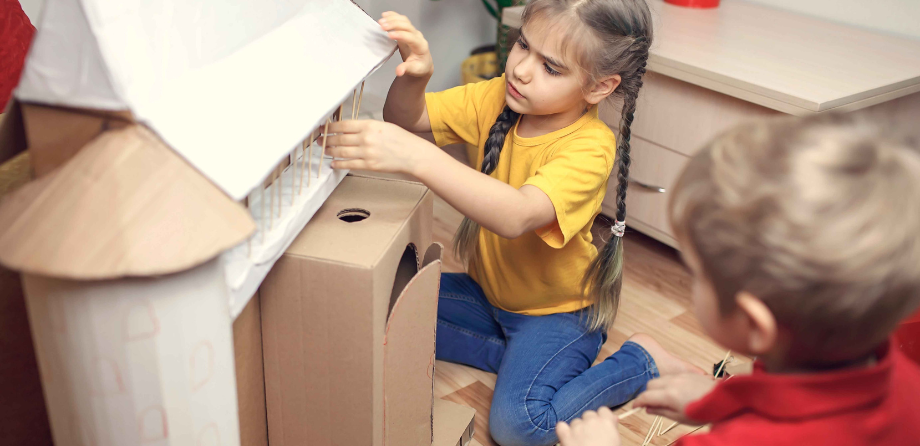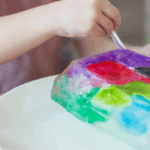
Early years activity: Recycling – junk play
Modelling with recycled ‘junk’ can encourage children’s creativity, collaboration, problem solving and sense of achievement. This activity can also be used to support children’s awareness of recycling materials and repurposing items that are no longer in use.
Recycling junk play learning aims
- Introduce principles of recycling
- Be curious and creative
- Introduce vocabulary
- Work collaboratively
- Develop fine motor skills.
Resources you will need for this activity
- A selection of ‘junk’ items, e.g. empty boxes and tubes, bottles tops, etc.
- Resources to stick models together (glue, sticky tape, split pins etc.)
- Selection of paints and brushes.
Recycling junk play activity outline
- Invite the children to explore the range of recycling you have gathered and introduce the purpose of recycling. Enable children to share their home recycling processes
- Talk about how we can re-use items to create something new. Ask the children what they think they could make from all these objects, remember to focus on the creative process rather than the final outcome
- Offer children the choice to work alone or to work with their friends to create something together
- Support children’s ideas and problem solving as they create, offering alternatives if needed, for example, “What else could you use to hold the boxes together?”
- Ask children if they would like to take a photograph of their finished creation and create a display of their work
- Celebrate children’s creative ideas and imagination.
How to extend this activity
Recycle old socks and create sock puppets using scraps of material to create individual characters.
NDNA products to support you with this activity
Expressive arts and design nursery training – Face to face training
Disclaimer: Activities with children must always be risk assessed, including for allergies or choking. Children must always have adequate supervision. Resources and materials must always be appropriate for children’s age and stage of development.
- Activity
- MyNDNA
Similar Articles
Top tips: Supporting your team’s well-being
Educating and caring for young children is an incredibly rewarding role, but it can also…
Read more 
Early years activity: Frozen balloon explorers
Freezing water in balloons is an amazing sensory experience and also a great opportunity for children to discover…
Read more 

